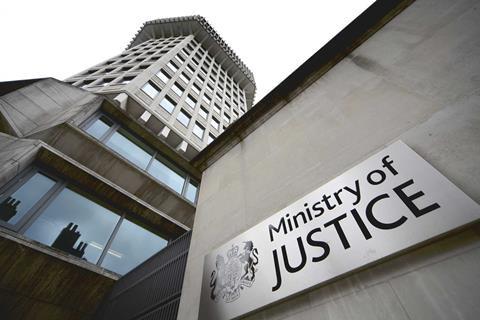Magistrates have had controversial powers that enabled them to sentence people for up to a year in prison taken away from them – but they could be restored, the government has said.
Last year lord chancellor Dominic Raab doubled the maximum prison sentence magistrates could hand down to help free up capacity in the Crown court and reduce the case backlog.
Magistrates do not need any specific legal training and do not sit exams. They undergo mandatory training of about three-and-a-half days before sitting in court and are allocated a mentor in the first year. After sitting for 12 months, they are regularly appraised by specially trained magistrates.
Today, the Ministry of Justice confirmed that it had pressed pause on the greater power.
A Ministry of Justice spokesperson said: ‘We thank the magistrates for all their hard work to help us bring down the backlog following the pandemic and ensure victims get the justice they deserve.

‘Increasing their sentencing powers was one of many measures introduced to help address the impact of the pandemic on the criminal justice system, but we have always retained the flexibility for this to be changed as needed. We continue to make sure those who commit the most serious offences are put behind bars for longer.
The department said the change will not affect the handout of longer, tough sentences to those who deserve them, and cases requiring a longer sentence will continue to be heard in the Crown courts.
The government still hopes to reduce the Crown court backlog to 53,000 by March 2025. The backlog stood at 61,316 in January.
Raab was heavily criticised for increasing magistrates’ powers by parts of the legal profession, who warned that it would put additional strain on Crown courts and could undermine defendants’ right to a jury trial.
Criminal Bar Association Kirsty Brimelow KC welcomed the reversal.
She said: ‘Giving additional sentencing powers to magistrates always would increase the risk of additional people being imprisoned for short sentences which places pressure on already overcrowded prisons.
‘Government needs to focus on full implementation of the Criminal Legal Aid Advisory Board, recommended by Sir Christopher Bellamy, in order to stop the criminal justice system lurching from crisis to crisis.
‘As we pointed out in January 2022 [when the new powers were announced], increasing magistrates’ sentencing was a bad idea for reasons of increasing short prison sentences; increasing defendants electing to go to crown court, and increasing appeals in crown court.’
However, the Magistrates' Association was 'incredibly disappointed' by the decision.
Mark Beattie, the association's national chair, said: 'We are incredibly disappointed by the impending introduction of this statutory instrument, which will be implemented as part of Operation Safeguard’s efforts to reduce overcrowding in male prisons.
'The extension of magistrates’ sentencing powers from six to 12 months is something we had long campaigned for as a vital means of ensuring speedier justice for all. It was succeeding - delivering faster results for victims, witnesses and defendants.
'This new statutory instrument is likely to slow down justice. It highlights the importance of a well-resourced justice system that can cope with the volume of cases considered by the courts.'
The association will urge the government to restore magistrates' extended powers. 'To not do so would further erode magistrates’ already low morale and may well result in resignations at a time when the government is actively seeking to boost the number of sitting magistrates. We await confirmation of a date for a formal review of the statutory instrument,' he said.



























8 Readers' comments